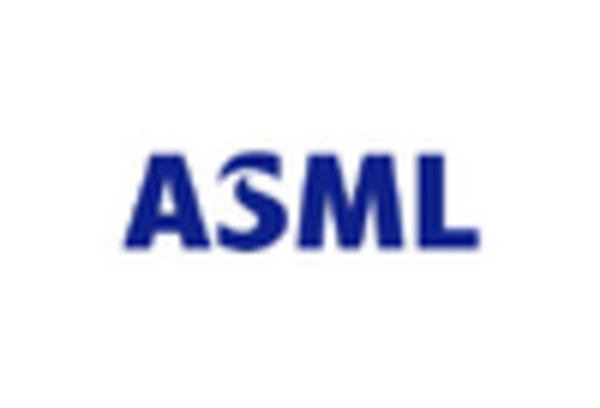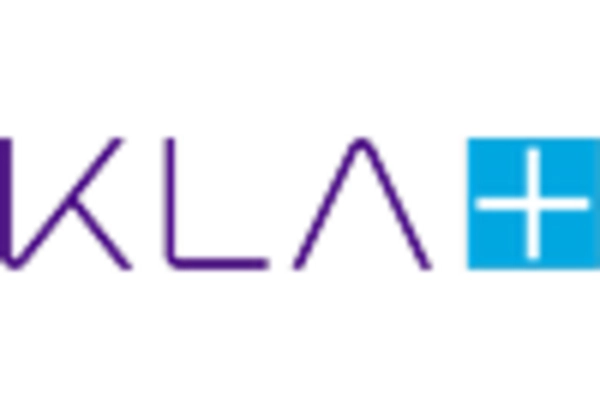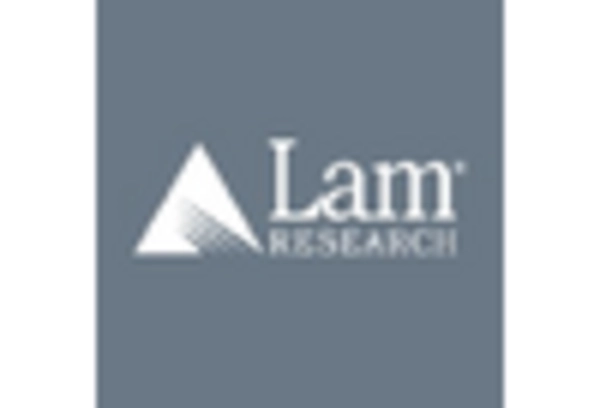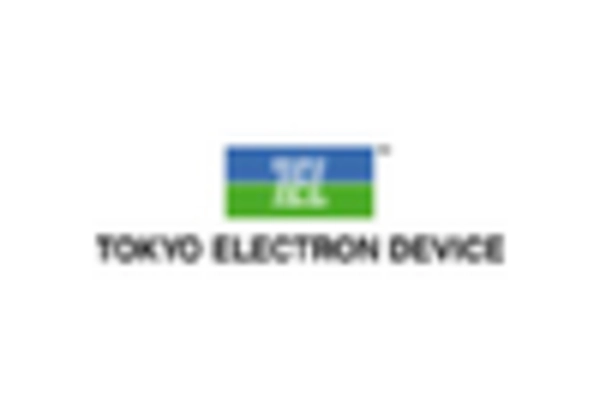Rising Demand for Consumer Electronics
The Semiconductor Capital Equipment Market is significantly influenced by the increasing demand for consumer electronics. With the proliferation of smartphones, tablets, and smart home devices, the need for advanced semiconductor components is surging. In 2025, the consumer electronics sector is expected to account for a substantial portion of semiconductor sales, driving investments in capital equipment. This trend compels manufacturers to enhance their production capabilities, leading to a robust demand for semiconductor capital equipment. As consumer preferences shift towards more sophisticated and feature-rich devices, the Semiconductor Capital Equipment Market must adapt to meet these evolving requirements.
Geopolitical Factors and Supply Chain Resilience
The Semiconductor Capital Equipment Market is increasingly affected by geopolitical factors that influence supply chain dynamics. Trade tensions and regulatory changes can impact the availability of critical materials and components, prompting manufacturers to seek more resilient supply chain strategies. In 2025, the emphasis on supply chain resilience is likely to drive investments in domestic semiconductor manufacturing capabilities, thereby increasing the demand for capital equipment. As companies navigate these challenges, the Semiconductor Capital Equipment Market may witness a shift towards localized production and diversified sourcing strategies, ultimately shaping the future landscape of the industry.
Growth of Electric Vehicles and Renewable Energy
The Semiconductor Capital Equipment Market is poised for growth due to the rising adoption of electric vehicles (EVs) and renewable energy technologies. As the automotive sector transitions towards electrification, the demand for power semiconductors is escalating. In 2025, the EV market is projected to expand significantly, necessitating advanced semiconductor manufacturing equipment to produce high-efficiency components. Additionally, the integration of renewable energy sources, such as solar and wind, requires sophisticated semiconductor solutions for energy management systems. This shift towards sustainable technologies is likely to drive investments in the Semiconductor Capital Equipment Market, as manufacturers seek to capitalize on these emerging opportunities.
Technological Advancements in Semiconductor Manufacturing
The Semiconductor Capital Equipment Market is experiencing rapid technological advancements that are reshaping manufacturing processes. Innovations such as extreme ultraviolet lithography (EUV) and atomic layer deposition (ALD) are enabling the production of smaller, more efficient chips. In 2025, the market for semiconductor manufacturing equipment is projected to reach approximately 100 billion USD, driven by the demand for advanced nodes and high-performance computing. These advancements not only enhance production efficiency but also reduce costs, making it imperative for manufacturers to invest in cutting-edge equipment. As the industry evolves, companies that adopt these technologies are likely to gain a competitive edge, further propelling the Semiconductor Capital Equipment Market forward.
Increased Investment in Semiconductor Research and Development
The Semiconductor Capital Equipment Market is benefiting from heightened investments in research and development (R&D) across the semiconductor sector. Companies are allocating substantial resources to innovate and develop next-generation technologies, which in turn drives the demand for advanced capital equipment. In 2025, R&D spending in the semiconductor industry is expected to reach new heights, reflecting the industry's commitment to maintaining technological leadership. This focus on innovation not only enhances product offerings but also stimulates the Semiconductor Capital Equipment Market, as manufacturers require state-of-the-art equipment to support their R&D initiatives.















Leave a Comment